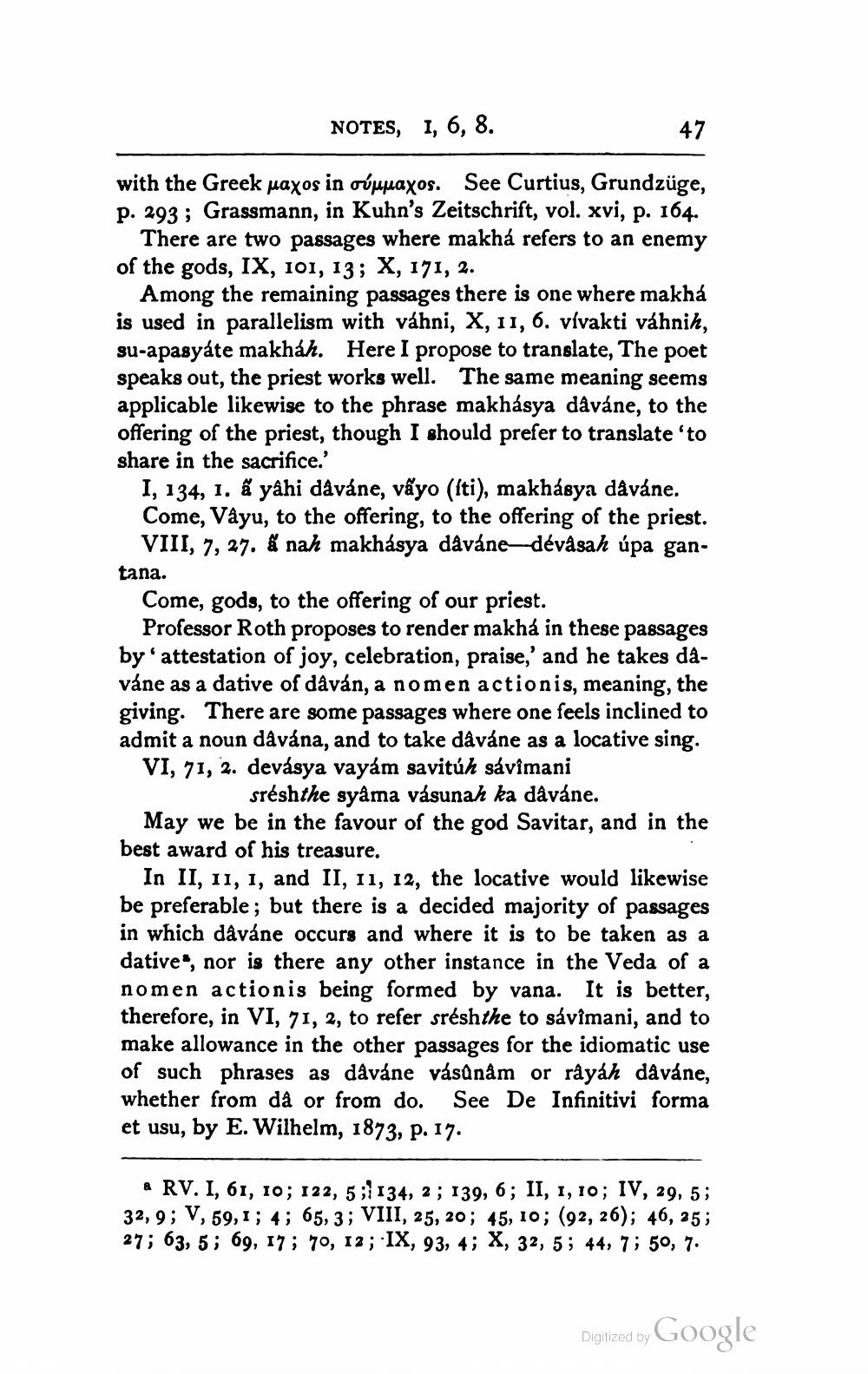________________
NOTES, I, 6, 8.
47
with the Greek paxos in cúmpaxos. See Curtius, Grundzüge, p. 293 ; Grassmann, in Kuhn's Zeitschrift, vol. xvi, p. 164.
There are two passages where makhá refers to an enemy of the gods, IX, 101, 13; X, 171, 2.
Among the remaining passages there is one where makhá is used in parallelism with váhni, X, 11, 6. vivakti vahnih, su-apasyáte makháh. Here I propose to translate, The poet speaks out, the priest works well. The same meaning seems applicable likewise to the phrase makhásya dâváne, to the offering of the priest, though I should prefer to translate 'to share in the sacrifice.'
I, 134, 1, ã yâhi dâváne, vấyo (Iti), makhásya dáváne. Come, Vayu, to the offering, to the offering of the priest.
VIII, 7, 27. & nah makhasya dávane-dévasah úpa gantana.
Come, gods, to the offering of our priest.
Professor Roth proposes to render makhá in these passages by'attestation of joy, celebration, praise,' and he takes daváne as a dative of dâván, a nomen actionis, meaning, the giving. There are some passages where one feels inclined to admit a noun dâvána, and to take dåváne as a locative sing. VI, 71, 2. devásya vayám savitúh sávimani
sréshthe syama vásunah ka dâváne. May we be in the favour of the god Savitar, and in the best award of his treasure.
In II, 11, 1, and II, 11, 12, the locative would likewise be preferable; but there is a decided majority of passages in which dåváne occurs and where it is to be taken as a dative", nor is there any other instance in the Veda of a nomen actionis being formed by vana. It is better, therefore, in VI, 71, 2, to refer sréshthe to sávimani, and to make allowance in the other passages for the idiomatic use of such phrases as dāvane vásūnam or râyah dåvane, whether from då or from do. See De Infinitivi forma et usu, by E. Wilhelm, 1873, p. 17.
a RV. I, 61, 10; 122, 5;1134, 2 ; 139, 6; II, 1, 10; IV, 29, 5; 32, 9; V, 59,1; 4; 65, 3; VIII, 25, 20; 45, 10; (92, 26); 46, 25; 27; 63, 5; 69, 17; 70, 12; IX, 93, 4; X, 32, 5; 44, 7; 50, 7.
Digitized by Google




